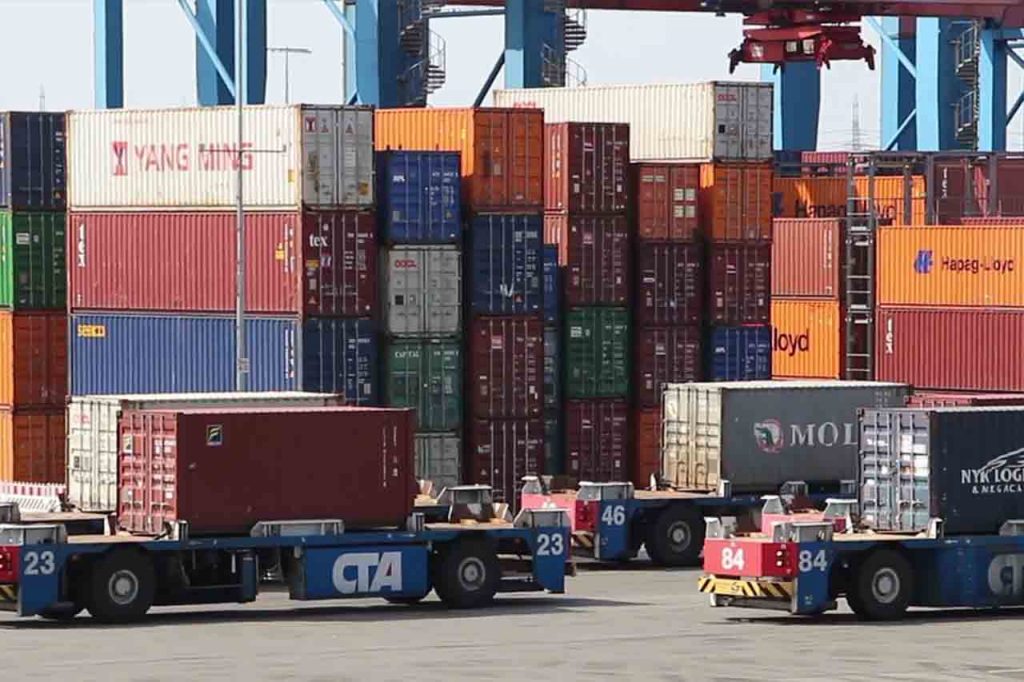You’ve already used the acronym FOB in your shipping documents if you’ve ever shipped something. The word “free on board” or “freight on board” (FOB) refers to who is responsible for paying transportation charges in the retail shipping industry. But how many people understand what it means? As it turns out, not much. Also, those in the shipping sector familiar with freight shipping terms are often perplexed as to the true sense.
When products are shipped domestically or globally, they must be preceded by the appropriate documentation. The amount and form of paperwork required differ depending on whether the shipment is to or from the United States.
There are three primary documents to be mindful of while shipping domestically: the bill of lading, the freight bill, and the Free Onboard (FOB) terms of sale. The FOB form is referenced on all records, such as the invoice for payment, for most retailers.
What FOB Stands For?
Freight on Board (FOB), also known as Free on Board, is an international commercial law concept issued by the International Chamber of Commerce (ICC). It denotes how the financial risks of shipped products are transferred from the seller to the buyer. In modern domestic shipping, the term refers to the point at which the seller is no longer liable for the shipped goods, and the buyer is responsible for the payment of the transport costs. Preferably, the seller pays the freight charges to a major port or other shipping destination, and the buyer pays the transportation costs from the warehouse to his store or vendors.
The terms of sale generally specify who will be paying for freight costs. If the Freight on Board is marked as “FOB delivered,” the seller or shipper would be solely responsible for all transportation costs. When the FOB terms of sale are “FOB Origin,” the buyer is liable for the cost of shipping the goods from the seller’s warehouse to the final destination. It is worth remembering that FOB does not determine who owns the cargo, only responsible for the shipping costs. The bill of lading or waybill establishes possession.
History Of The Term
FOB used to refer to the exchange of title and responsibility between buyers and sellers of goods, and it was only used for goods transported by sea. Since the days when sea trade was the predominant mode of transporting goods, the concept has extended to include all modes of transportation and can differ by country or legal jurisdiction.
One of the most critical aspects of FOB terminology is that it determines who owns the freight when it is in transit. If the freight is damaged or destroyed, the owner’s insurance policy kicks in. As a result, it’s essential to understand the terms and liability for the shipment at each point of its journey.
Purchase orders for any vendor-client transaction should clearly state the FOB terms. A supplier should have a standard set of words that can be agreed upon on a per-vendor basis. This will save you time and money in the long run.
Understanding Free On Board (FOB)

Contracts concerning foreign shipping often involve shortened trade terms that explain things like the time and place of delivery, payment, when the risk of failure moves from the seller to the buyer, and who pays for freight and insurance.
The International Chamber of Commerce (ICC) publishes the most popular international trade terms, Incoterms, but companies shipping products within the United States must also follow the Uniform Commercial Code (UCC). Since several sets of rules and legal meanings of FOB vary from country to country, the parties to a contract must specify which governing laws will be used for a shipment.
One of the most critical features of FOB is that it specifies when control of the freight passes from the seller to the buyer. Any vendor-client contract needs to have specific FOB terms in the purchase order because these terms specify who pays for shipping and insurance costs.
If the terms state “FOB destination, freight collect,” the seller retains the shipment title and possession until it is shipped, and the buyer is responsible for freight charges. If the terms state “FOB destination, freight prepaid,” the seller retains ownership until delivery, assuming no insurance claims. The seller is responsible for the freight charges in this case. In contrast, “FOB root” or “FOB shipping point” denotes the inverse—that the buyer acquires ownership as soon as the vendor ships the products.
Why Does FOB Matter?
FOB is essential for various reasons, the most important of which is that shippers and carriers must recognize FOB designations in harmful situations. Some receiving docks will deny delivery of clearly damaged goods rather than accepting them with a loss notation for a potential lawsuit against the carrier.

A shipment labelled FOB Origin, on the other hand, legally belongs to the buyer/consignee at the time it is delivered. As a result, the consignee will deny delivery of products that it legitimately owns and is responsible for. The seller has no legal excuse to accept those products back, and the return shipment could cause additional harm.
Difference Between CIF And FOB
Cost, Insurance, and Freight (CIF) and Freight on Board (FOB) are foreign shipping words used to move cargo from seller to buyer. Although both comments are used interchangeably, their meanings differ from country to country.
The seller bears the costs of shipping items from the seller to the buyer in CIF agreements. Until the buyer takes possession of the goods, the seller pays for insurance, storage, and other expenses associated with the movement of goods.
Apart from this, to get San Francisco News, you can follow Publicistpaper.
Bottom Line
To ensure a smooth transition of products from vendor to customer, each party should have a firm understanding of free on board (FOB). If the transfer is domestic or foreign, FOB terms may significantly affect inventory, storage, and insurance costs. As an eCommerce business owner, it is vital that you understand the difference between CIF and FOB as these can greatly influence your freight costs. If you want lower freight costs, make sure you pay attention to the FOB terms of sale.




![How Much is Lil Baby’s Net Worth in 2024 [Latest Info] Lil Baby Net Worth](https://www.wariat.org/wp-content/uploads/2024/03/Lil-Baby-Net-Worth-150x150.jpg)
![Rob Lowe Net Worth Speculation in 2024 [Comparative Analysis] Rob Lowe Net Worth](https://www.wariat.org/wp-content/uploads/2024/03/Rob-Lowe-Net-Worth-150x150.jpg)

